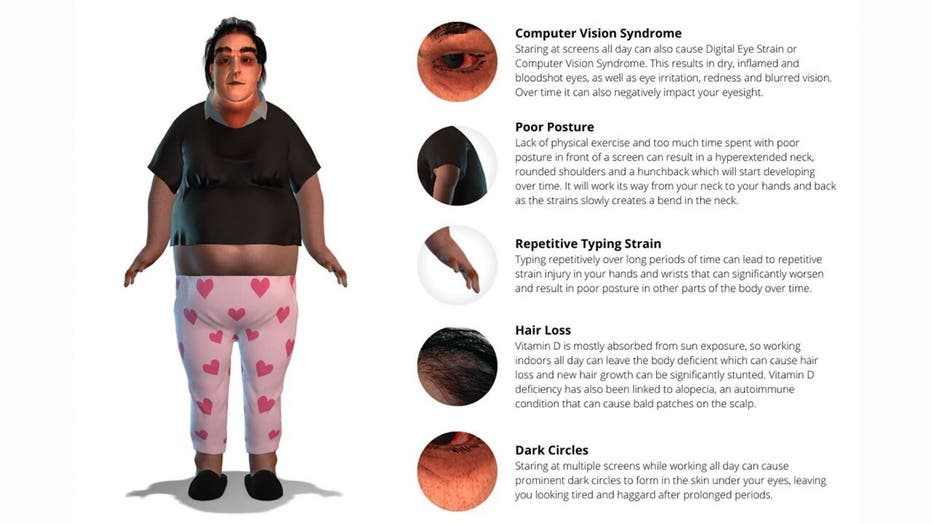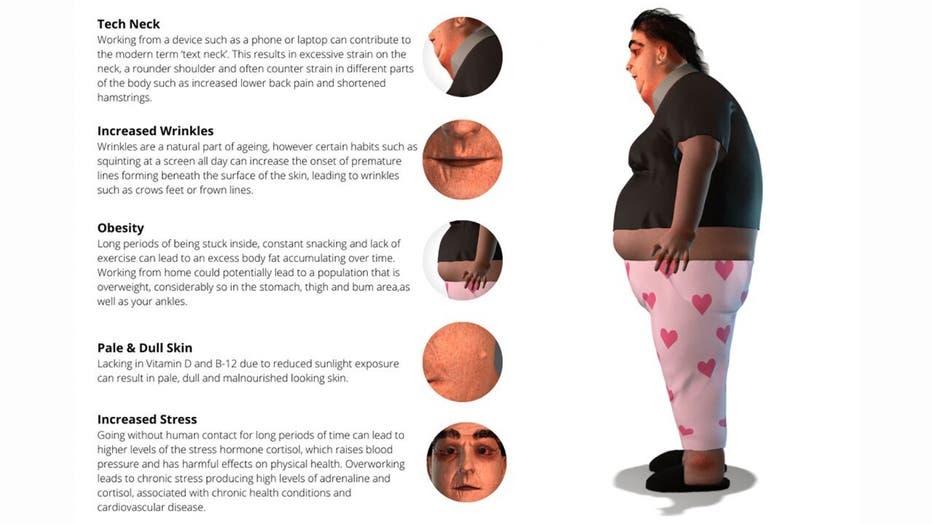Company shares shocking model of future remote worker as pandemic continues

FOX NEWS - Yikes!
Millions of American workers became remote employees overnight when the coronavirus pandemic hit earlier this year, and the future isn’t looking too bright for those who fail to maintain healthy habits while working from home in the long-term, new findings claim.
Job discovery platform DirectlyApply recently unveiled a visual model for what future remote workers might look like in 25 years if they don't reform bad habits now, in a figure they’ve named Susan.
Suffering from digital eye strain, poor posture, "tech neck," obesity, increased stress due to lack of human contact and more, Susan dramatically exemplifies the physical repercussions remote workers may suffer if they fail to prioritize their physical and mental health beyond their 9 to 5.
MORE NEWS: Tracking coronavirus: Florida shatters single-day record adding over 11,400 new cases
Susan was created in partnership with a team of clinical psychologists and fitness experts to highlight the effects that isolated working can have on the body, according to DirectlyApply.

"With lockdown having forced people across the globe into what has been the world’s largest remote working experiment, our usual interpretation of the perk has been transformed forever,” a spokesperson for the job-searching site said in a statement shared with Fox News. “Whilst your bed-to-desk commute may allow for more free time and independence, will the physical repercussions to your mind and body be worth it in the future?”

With that being said, the London-based job searching site, which also operates in the U.S. and Canada, shared positive tips for improving physical and mental health while working remotely, amid an uncertain future.
MORE NEWS: Walmart is turning 160 of its parking lots into drive-in theaters this summer
To improve health and wellness during this time, remote workers are encouraged to stick to a routine to optimize productivity, nurture (virtual) social connections with colleagues, exercise outside, clearly delineate between working and living spaces to promote a healthy work-life balance and use free time wisely to support emotional health.
Get updates at FOXNews.com

